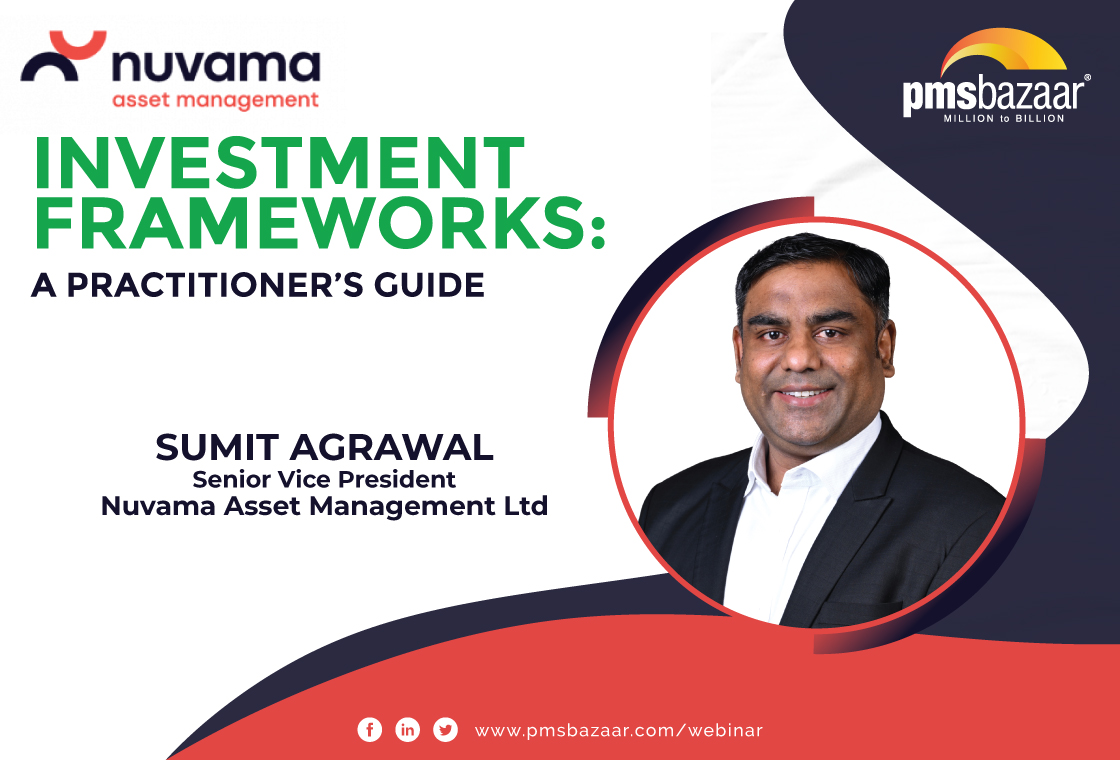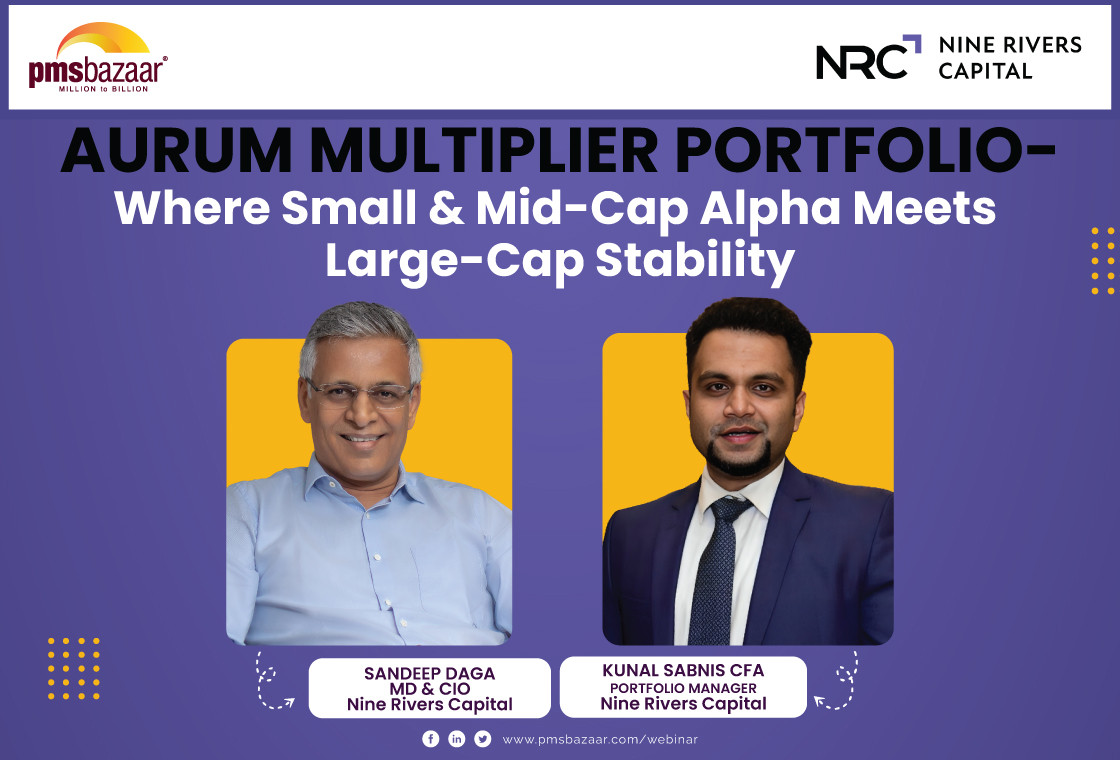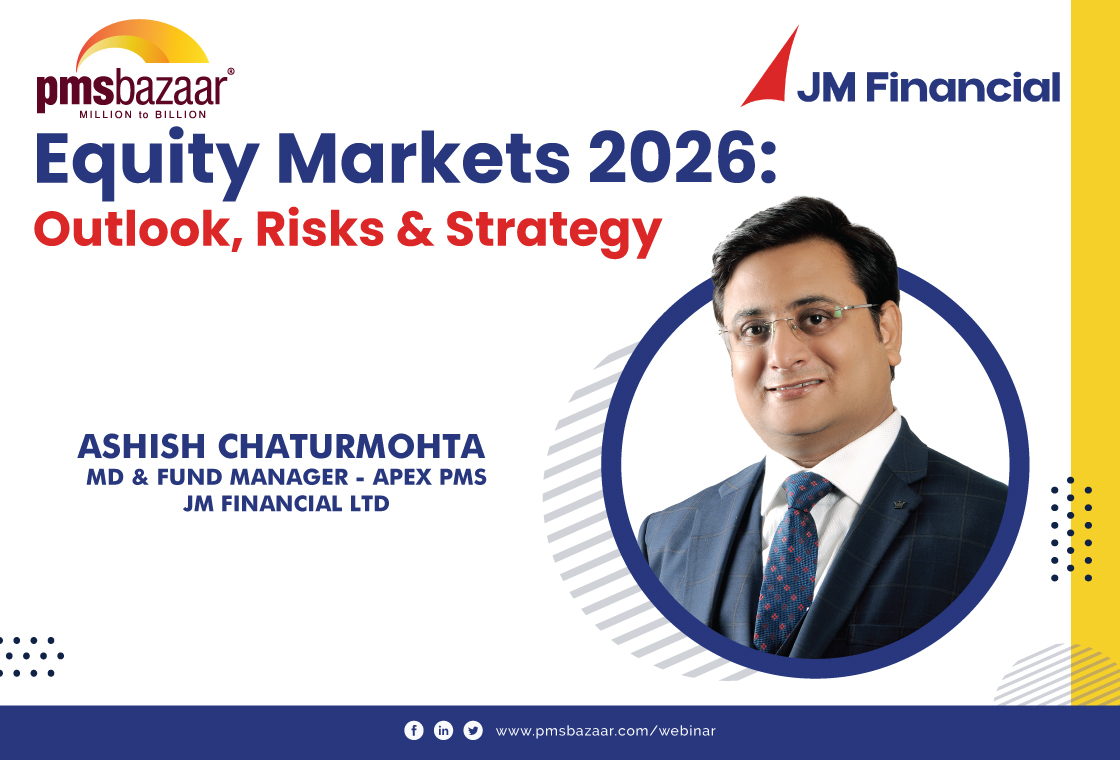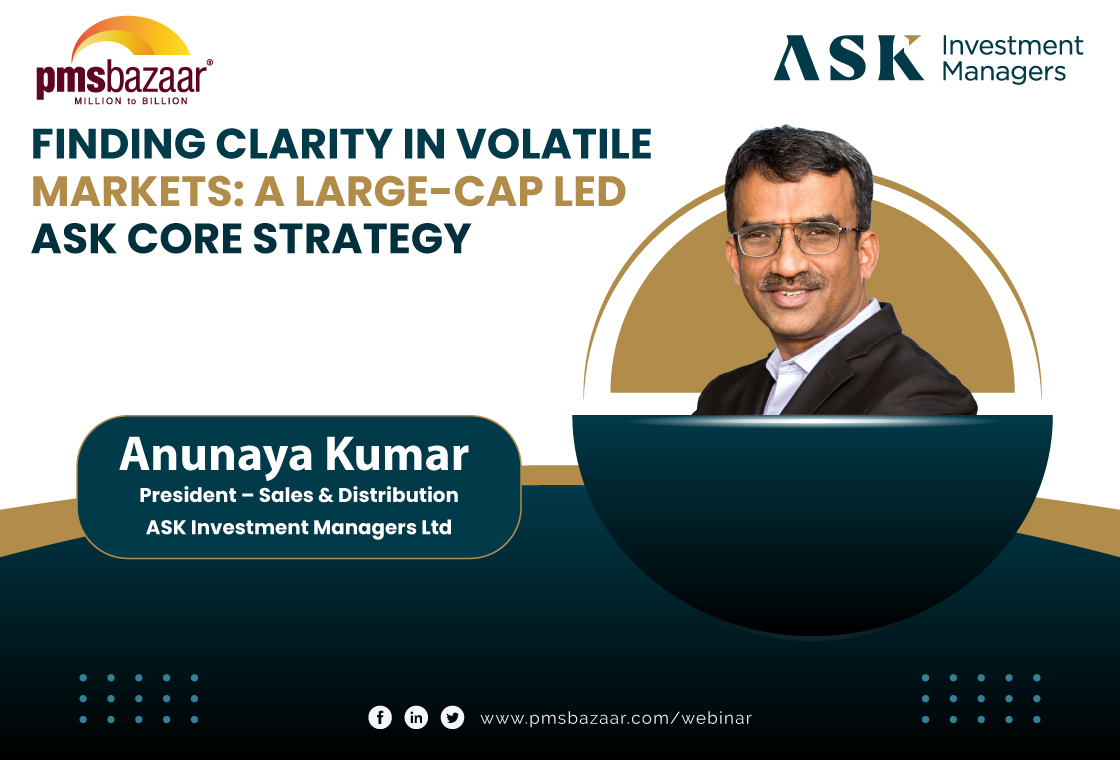Contrary to popular perception, the stock market isn’t rocket science. All the same, its risk-reward is significantly skewed. The creation of wealth is such that only 5 per cent of investors enjoy 95 per cent of the fruits. The rewards are immense if you consider that the SENSEX has grown 600 times in the past 42 years.

Siddhartha Bhaiya, Managing Director of Aequitas Investment Consultancy demystifies the market and offers some sage advice to profit from it.
Peter Lynch is famous for being the manager of the Magellan Fund at Fidelity Investments. He averaged a 29.2 per cent annual return, consistently more than double the S&P 500 stock market index, making it the best-performing fund in the world. His track record has made him a role model to investors across the world, one of whom is Siddhartha Bhaiya, the Managing Director of Aequitas.
But Siddhartha is not a starry-eyed fund manager who preaches Lynch and Buffett but buys the season's hot stocks. Value investing comes naturally to him. Beginning his career on 9/11, Siddhartha first witnessed jaw-dropping falls in the stock market, followed by recovery. In 2012, after six years in a prominent AMC's PMS division as a fund manager, Siddhartha set up Aequitas Investment Consultancy, a boutique investment management firm.
Since its inception, Aequitas' small-cap focussed strategy had delivered returns of 33 per cent CAGR or 1050 per cent absolute gain. An investment of a crore rupees made with Aequitas in February 2013 would be worth over Rs 11 crore, over four times the corresponding return of Rs 2.6 crore from Nifty.
PMS Bazaar hosted Siddhartha Bhaiya in a webinar on September 24. Here’s what he said.
The market as a multi-bagger
Most people think investing is a complex thing. Peter Lynch's book, One Up on Wall Street: How to use what you already know to make money in the market changed that mindset. It explains how your knowledge alone can assist you to beat the pros of investing.
When people ask me about investing, I tell them to read this book. What Lynch has done is essentially simplify investing. I see a lot of people around me trying to complicate it to position themselves as experts. But, the truth is different.
Investors want great returns, and multi-baggers are an easy way to get them. By definition, stocks that give returns that are several times their cost are called multi-baggers. Over the past two decades, I have realised that the market itself is a multi-bagger. The SENSEX - with a base value of 100 in 1979 – has recently crossed the 60000-mark. That's 600 times in 42 years. At inception, any talk of the SENSEX at the current level would have been laughed off. But, it has happened.
We hear Rakesh Jhunjhunwala or Ramdeo Agrawal say that the Nifty/SENSEX will touch the 100,000-mark. Most investors consider such predictions incredible. But if history is any indication, this cannot be ruled out.
However, the risk-reward in the stock market is significantly skewed. The creation of wealth is such that only 5 per cent of investors enjoy 95 per cent of the fruits.
The Aequitas philosophy
A boutique investment firm specialising in small-cap equities, Aequitas works predominantly with UHNIs and family offices and manages an AUM of over Rs 1500 crore. It has 3 products: PMS, AIF and an off-shore fund under DIFC.
The firm’s belief in small-caps being massive wealth creators stems from the track record of such stocks. Small-caps have outperformed large-caps through upcycles. Many large firms (such as Avanti Feeds, Eicher and Finolex), started as small companies. More importantly, it is a myth that small-caps are riskier than large-caps. Suzlon, R Com and Unitech have shown that large-caps are no strangers to massive drawdowns.
A key difference between successful investors and others is the ability to hold the stock and let profits run. The impatient investor books profits at 30-50 per cent. It takes a lot of courage to hold on to a multi-bagger, as healthy portfolios do.
Another important aspect of investors with multi-baggers is their ability to withstand periods of sharp temporary declines. NRN Murthy, Azim Premji or Mukesh Ambani do not sell shares at every 10-20 per cent drop. If you do not want volatility, stick to bank fixed deposits that give a 5-6 per cent annual return.
Any multi-bagger stock will go through multiple drawdowns of more than 50 per cent. Prudence lies in holding on to it till it reaches a hundred-bagger status. If a stock does not have the potential to deliver multi-bagger returns, I am not interested in it.
From small-cap to multi-bagger
- For a small-cap to aspire to become a multi-bagger, three elements are crucial.
- The company must demonstrate above-average potential for growth for the next 3-5 years. Markets reward a higher PE multiple for growth companies.
- The stock should be a contrarian play. A contrarian approach does not mean doing the opposite of others, rather it means doing things differently. Buying popular names is no guarantee of multi-bagger returns.
The valuation must be reasonable. This is important because there has to be potential for re-rating. A combination of EPS growth and PE re-rating leads to multi-bagger returns.
Caution when dealing with small-caps
Dabbling directly in small-caps may not be a viable option for the ordinary investor. With a flood of small-caps in the market, due diligence is a prerequisite to investing. The first criterion is that it should be an industry leader. Don't invest in a Godavari Power or a Sarda Energy when Tata Steel is already the industry leader. Retail investors have no business to be in small-cap stocks with annual revenue of less than Rs 500 crore.
Risk is not a number; rather, it is a notion. It is what Ben Graham called the permanent loss of capital. There are broadly three types of risks: Valuation risk, Earnings risk and Balance-sheet risk.
Reasonable valuation is the cornerstone of sound investment decisions. Valuation risk is the risk of buying a stock without an adequate margin of safety. Earnings risk arises from the possibility of a fall in current earnings due to technological changes, economic changes or deterioration in management. Balance-sheet risk is a result of an overleveraged balance sheet which is ignored during good times in favour of high cyclicality and unsustainable earnings.
Other considerations
The stock market is futuristic. Who would have predicted the rise of disruptions such as Google, Uber and Airbnb? Media has been disrupted by Netflix. Newspapers quoting at 7-8 times PE multiple today were trading at 40-50 PE multiples. Valuation is extremely important. Value tends to gyrate around its intrinsic value.
Similarly, growth is an interesting concept. Stock markets love growth and will give 80-100 times PE multiples. But the thing about buying growth stories is that you have to buy them early in the cycle. One of my best investments was in Avanti Feeds. I bought it at 3 PE multiple. The company grew 50-60 per cent CAGR for 5 years. Then, the stock became a 150-bagger. People would look at the company and say what a wonderful company it was with such RoE and ROCE. I tell them to look at the valuation now.
Be wary of pitfalls such as IPOs, leverage, fad or hot sectors, low promoter holding, corporate governance, QIPs/secondary equity sales, high institutional ownership and expensive valuations. Remember that every multi-bagger started as a small-cap but not every small-cap ends up being a multi-bagger.
If this article has whetted your appetite for more, relive the entire session by clicking on the link below:
For more information, please contact info@pmsbazaar.com
Recent Blogs

January Rout, Extreme Dispersion: PMS Returns Swing From Losses to Gains
Benchmark falls deepened losses, but multi-asset and debt cushioned portfolios meaningfully

Investment Frameworks : A Practitioner’s Guide
PMS Bazaar recently organized a webinar titled “Investment Frameworks: A Practitioner’s Guide,” which featured Mr. Sumit Agrawal, Senior Vice President, Nuvama Asset Management Limited. This blog covers the important points shared in this insightful webinar.

Aurum Multiplier Portfolio - Where Small and Mid-Cap Alpha Meets Large-Cap Stability
PMS Bazaar recently organized a webinar titled “Aurum Multiplier Portfolio - Where Small and Mid-Cap Alpha Meets Large-Cap Stability,” which featured Mr. Sandeep Daga, MD& CIO, Nine Rivers Capital and Mr. Kunal Sabnis, Portfolio Manager, Nine Rivers Capital. This blog covers the important points shared in this insightful webinar.

Flat Markets, Wide Outcomes: How 484 PMS Strategies Performed in Dec 2025
December 2025 was a month where market returns stayed close to flat, with the Nifty 50 TRI at -0.28% and the BSE 500 TRI at -0.24%.

Equity Markets 2026: Outlook, Risks and Strategy
PMS Bazaar recently organized a webinar titled “Equity Markets 2026: Outlook, Risks and Strategy,” which featured Mr. Ashish Chaturmohta, MD & Fund Manager – APEX PMS, JM Financial Limited. This blog covers the important points shared in this insightful webinar.

MICRO CAPS: The Dark Horses of the Indian Equity Market
PMS Bazaar recently organized a webinar titled “MICRO CAPS: The Dark Horses of the Indian Equity Market,” which featured Mr. Rishi Agarwal and Mr. Adheesh Kabra, both Co-Founders and Fund Managers, Aarth AIF. This blog covers the important points shared in this insightful webinar.

Finding Clarity in Volatile Markets: A Large-Cap Led ASK CORE Strategy
PMS Bazaar recently organized a webinar titled “Finding Clarity in Volatile Markets: A Large-Cap Led ASK CORE Strategy,” which featured Mr.Anunaya Kumar, President – Sales and Distribution ASK Investment Managers Limited. This blog covers the important points shared in this insightful webinar.
.jpg)
Passively Active Investing — A Modern Investor’s Lens on ETF-Based PMS
PMS Bazaar recently organized a webinar titled “Passively Active Investing — A Modern Investor’s Lens on ETF-Based PMS,” which featured Mr. Karan Bhatia, Co-Founder and Co-Fund Manager , Pricebridge Honeycomb ETF PMs. This blog covers the important points shared in this insightful webinar.

